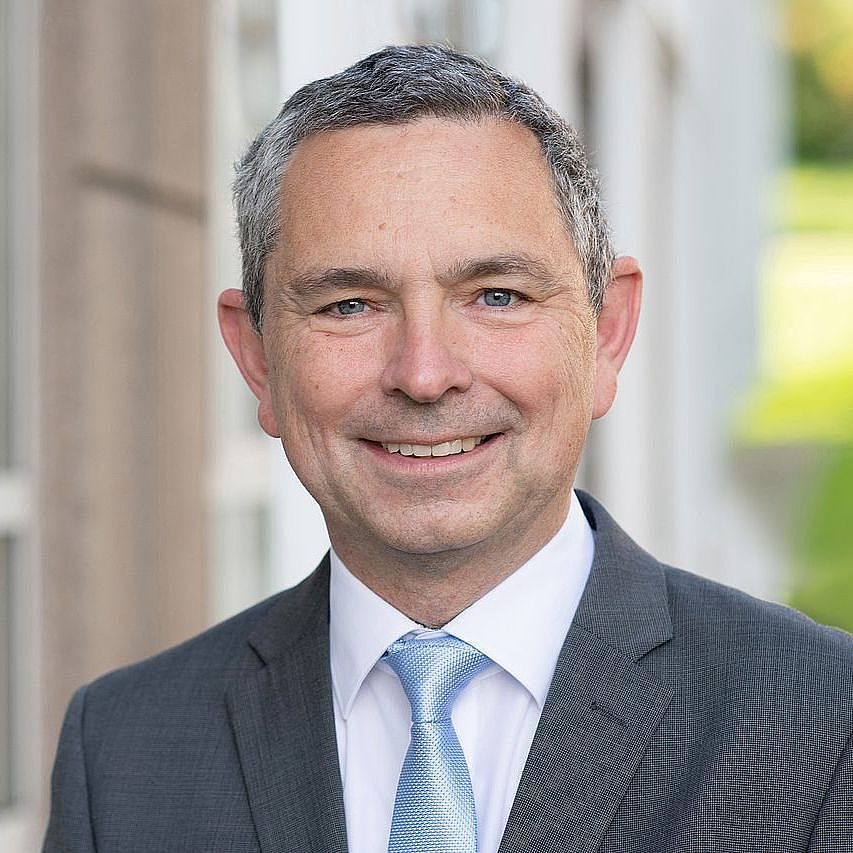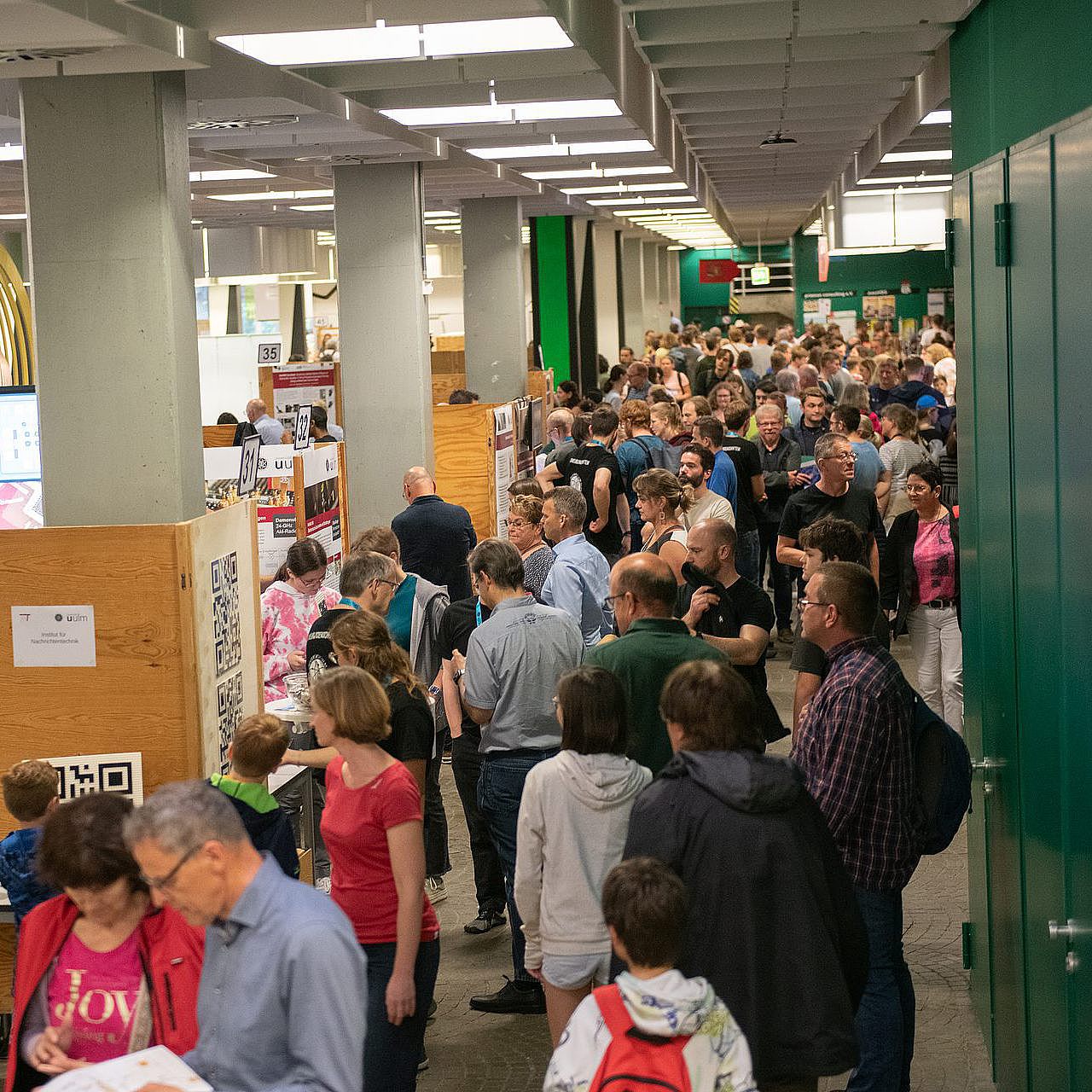Transfer mission statement
We transfer knowledge and shape the future.
We transfer knowledge and shape the future.
(adopted by the Senate of Ulm University on 16 November 2022)
Through innovative research and teaching at the highest level, Ulm University makes a significant contribution to solving the major social challenges of our time. The transfer of research results to society, industry and politics is an equally important concern.
Ulm University defines transfer as a multidimensional communication and exchange process between science, society, industry and politics. The field of action is formed by various dimensions of transfer - from research cooperations, contract research and scientific consulting to dialog with citizens and politics. Related to this is the university's integration and engagement in innovation ecosystems as well as networking with regional, national and international transfer actors.
In doing so, the university commits itself to sustainable and responsible action. Ulm researchers provide information about the opportunities and risks of new technologies or methodologies, reflect on possible consequences and incorporate findings from the social dialogue.

With a mission statement, we have defined in a broad participation process why transfer is important to us as a University and where we see our strengths and our potential.
Prof Michael Kühl
Vice President Outreach
Generating new knowledge: This claim is enshrined as "Sciendo, docendo, curando" in the mission statement of Ulm University. Today, Ulm University is a successful, internationally oriented research university with a focused range of subjects. Every day, scientists overcome the boundaries of the known and transfer their findings to society and the economy. These transfer activities of Ulm University now and in the future underpin the university's guiding theme: Crossing Borders.
The highly educated graduates of Ulm University are particularly contributing to the transfer into society ("Transfer über Köpfe").
Similarly, scientists at the University benefit in the context of their research activities from the confrontation with developments and interests in society, companies and politics in the sense of a multidimensional exchange process. In this discursive process, the scientists at Ulm University take care to maintain their independence and to feed back their contributions to knowledge with the recognized scientific methods in their respective disciplines.
Science continuously generates new knowledge as part of its cognitive processes. It is in the nature of science that researchers have to face and confront criticism and scientific as well as social discourse in the process. Thus, science is also a supporting pillar of the democratic form of government.
Through active science communication, the university informs about new findings and their potential for application and raises awareness of possible consequences. This is done in particular through suitable encounter formats between actors from civil society and the university.
With a focus on future-oriented knowledge transfer to and with the next generation, the university is also particularly concerned with contact to schools in the region. Within the framework of citizen science projects, the university enables participation in research projects and thus opens up the transfer dimension of research and development with society. In this way, the university provides insights into the working methods and dynamics of science.
In addition, researchers at Ulm University are active in providing scientific advice to politicians and companies alike, thereby supporting decision-makers with their expertise. In order to make scientific findings directly usable for companies and their employees, Ulm University facilitates job-related scientific continuing education.
Through digital offerings, the university thus creates a platform for participation in the region and far beyond. The dialog created by continuing education also provides impulses for current job-related challenges for research.
Altogether, the Ulm University fulfills its social educational mission in this way and thus contributes to the democratic will-forming process.
New findings and new technologies have considerable potential for utilization. The university sets itself the goal of actively raising this utilization potential.
In this context, research-based transfer is grounded in contractually secured research collaborations with companies, commissioned research and services. In medical research, the university works towards the translation of new findings into clinical practice.
The university develops, operates and maintains a research-supporting infrastructure and also makes this available to external parties in the form of core facilities or institute infrastructure. The exchange between the university and companies is intended to work in both directions.
The university secures its own inventions within the framework of intellectual property rights. To this end, the university operates an active utilization management system and reviews and updates its own patent strategy at regular intervals.
Start-ups represent an opportunity for the transfer of innovations and competencies from the university to society. In order to strengthen start-up activities, the university offers suitable formats for raising awareness, qualification and support.
It supports entrepreneurial thinking and action and the development of start-up skills (entrepreneurship) across all faculties and institutions. Start-up projects are actively supported from the initial idea to the spin-off. In doing so, it sees itself as a central element in the regional innovation ecosystem.
As part of its regional transfer activities, the University actively cooperates with companies in the region, the Chamber of Industry and Commerce, the Chamber of Crafts, as well as the city of Ulm and the surrounding local authorities.

Find out more about the knowledge and technology transfer activities of Ulm University.